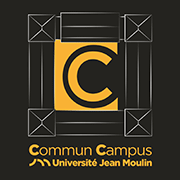AccueilRechercheProgrammes et productions scientifiquesThèsesThèses soutenuesThèses soutenues - 2006-2021Thèses soutenues - 2017
-
Partager cette page
- Recherche,
ROUVEURE Thomas
Vers une performance globale et durable de la micro-entreprise en phase de post-naissance – L’impact des compétences de l’entrepreneur
Publié le 12 février 2018 – Mis à jour le 26 juin 2018
Thèse en Sciences de gestion, soutenue le 29 novembre 2017.
L’entrepreneuriat focalise à l’heure actuelle l’attention de nombreux acteurs économiques, ce terme recouvre de riches concepts qui s’expliquent par quatre paradigmes développés au sein des travaux sur l’entrepreneuriat (Aldrich, 2005 ; Verstraete & Fayolle, 2005). Ces fondements placent l’entrepreneur comme l’acteur incontournable du processus entrepreneurial : c’est lui qui impulse la saisie d’opportunités, qui crée et développe une organisation et qui favorise le degré d’innovation dans l’entreprise, pour espérer créer de la valeur. En raison de la forte diversité de ses champs d’actions, nous avons fait le choix de cibler spécifiquement notre recherche sur la micro-entreprise (MIC) à une période précise du processus de création : la post-naissance. Quelles sont les activités constitutives du r?le de l’entrepreneur et les difficultés qu’il rencontre dans son entreprise ? Pourquoi seulement 4% des entreprises pérennes à 5 ans créent des emplois (Taugourdeau & Verdier, 2013) ? Cette recherche répond à des enjeux socio-économiques tels que : susciter l’esprit d’entreprendre, créer les emplois de demain et accro?tre le dynamisme du tissu économique (Assises de l’entrepreneuriat, 2013).
Après une analyse des principaux travaux destinée à mieux cerner le champ de l’entrepreneuriat, nous avons réalisé une recherche empirique afin de développer une méthodologie d’accompagnement qui vise à agir sur la configuration stratégique cognitive de l’entrepreneur. Le cadre théorique s’appuie sur trois théories qui, par leur complémentarité, offrent une perspective novatrice à cette recherche. A partir d’une approche structurée de la performance globale et durable de l’entreprise, issue de la Théorie Socio-Economique (TSE) (Savall, 1974 ; Savall & Zardet, 1987), nous proposons de construire une Architecture Dysfonctionnelle de la Micro-Entreprise (ADME) qui permet une analyse approfondie de son environnement interne. Par la suite, nous l’expérimentons et mesurons les répercussions financières des dysfonctionnements pour ces MIC. La TSE, par sa méthodologie d’intervention, ambitionne une volonté de changement dans l’entreprise et révèle le besoin de développement de compétences et d’évolution des comportements professionnels (Savall et al., 2015). Ainsi, nous nous rapprochons du champ de la cognition entrepreneuriale, observé à partir de la notion d’ ? attitude ?. Ces attitudes, accumulées, forment notre conception de la Configuration Stratégique Cognitive de l’Entrepreneur (CSCE), inspirée de la Théorie du Comportement Planifié (TCP) (Ajzen, 1987, 1991), puis élargie à partir du champ de la cognition entrepreneuriale (Grazzini & Boissin, 2013; Mitchell et al., 2002, 2007 ; Shapero & Sokol, 1982). La CSCE offre un approfondissement sur les structures de croyances à partir desquelles l’entrepreneur prend ses décisions et agit (Grazzini & Boissin, 2013). Elle permet d’expliquer dans quelle mesure l’intervention socio-économique agit sur l’intention de changement, puis, sur le comportement de l’entrepreneur. Par ailleurs, une relation peut se tisser entre la TCP et l’approche par les compétences à partir des attitudes de l’entrepreneur. La théorie de la compétence, adaptée au champ de l’entrepreneuriat (Bird, 1995 ; Chandler & Jansen, 1992 ; Lans et al., 2010 ; Man & Lau, 2000 ; Omrane et al., 2011; Toutain & Fayolle, 2008), s’appuie sur des travaux issus du champ de la compétence (Le Boterf, 1994, 2005 ; Durand, 2006 ; Zarifian, 2001, 2004). Cette approche reconna?t le tryptique : connaissance (savoir), pratiques (savoir-faire) et attitudes (savoir-être). La CSCE peut représenter un cadre d’analyse du savoir-être qui approfondit les caractéristiques d’influence d’actions de l’entrepreneur. Enfin, la relation établie avec la TSE est proposée à partir du modèle de co?t-valeur des activités (Savall & Zardet, 2008) qui connecte la compétence à une activité (Coulet, 2011). Nous proposons et expérimentons la nomenclature d’activités de l’entrepreneur, représentative des pratiques et savoirs qui lui sont nécessaires, tous intégrés dans trois r?les : entrepreneurial, gestionnaire et technico-fonctionnel (Chandler & Jansen, 1992).
La recherche empirique s’est déroulée en deux étapes. La première étape, exploratoire, comprend 43 répondants, acteurs divers de l’entrepreneuriat. La seconde est une recherche-intervention menée auprès de 16 MIC en phase de post-naissance. Ainsi, la problématique centrale de cette recherche est la suivante: Comment instaurer une méthodologie d’accompagnement visant à modifier l’intention de l’entrepreneur quant aux actions qu’il réalise dans son entreprise?
Entrepreneurship is currently focussing on the attention of many economic actors, and this term covers rich concepts that can be explained by four paradigms developed in the work on entrepreneurship (Aldrich, 2005 ; Verstraete & Fayolle, 2005). These foundations place the entrepreneur as the essential actor in the entrepreneurial process: he is the one who promotes the identification of opportunities, creates and develops an organization and promotes the degree of innovation in the company, hoping to create the value. Due to the wide diversity of its action fields, we have chosen to specifically target our micro-enterprise research (MIC) at a specific time in the creative process: post-birth. What activities constitute the role of the entrepreneur and the difficulties he encounters in his business? Why only 4% of 5-year-old companies create jobs (Taugourdeau & Verdier, 2013)? This research responds to socio-economic issues such as: fostering the entrepreneurial spirit, creating the jobs of tomorrow and increasing the dynamism of the economic fabric (Assises de l’entrepreneuriat, 2013).
After a main works analysis to better understand the field of entrepreneurship, we conducted an empirical research to develop an accompanying methodology that aims to influence the entrepreneur's strategic cognitive configuration. The theoretical framework is based on three theories which, by their complementarity, offer an innovative perspective to this research. Based on a structured approach to the overall and sustainable performance of the company, based on Socio-Economic Theory (TSE) (Savall, 1974 ; Savall & Zardet, 1987), we propose to construct a Dysfunctional Architecture Micro-Enterprise (ADME), which allows a thorough analysis of its internal environment. We then experiment and measure the malfunctioning financial implications of these MICs. The TSE, through its intervention methodology, aims at a wish for change in the company and reveals the need for skills development and changes in professional behavior (Savall et al., 2015). Thus, we approach the field of entrepreneurial cognition, observed from the notion of "attitude". The set of different kinds of attitudes can form our conception of the Cognitive Strategic Configuration of the Entrepreneur (CSCE), inspired by the Theory of Planned Behavior (TCP) (Ajzen, 1987, 1991) and then expanded from the field of entrepreneurial cognition (Grazzini & Boissin, 2013 ; Mitchell et al., 2002, 2007 ; Shapero & Sokol, 1982). The CSCE offers a deeper insight into the belief structures from which the entrepreneur takes decisions and acts (Grazzini & Boissin, 2013). It explains the extent to which socio-economic intervention influences the intention of change and then the entrepreneur behavior. In addition, a relationship can be forged between the TCP and the competency approach based on the entrepreneur's attitudes. The theory of competence, adapted to the field of entrepreneurship (Bird, 1995 ; Chandler & Jansen 1992 ; Lans et al., 2010 ; Man & Lau 2000 ; Omrane et al., 2011 ; Toutain & Fayolle, 2008), is based on works coming from the field of competence (Le Boterf, 1994, 2005 ; Durand, 2006 ; Zarifian, 2001, 2004). This approach recognizes the tripod: knowledge, practices (know-how) and attitudes. The CSCE can represent a know-how analysis framework that deepens the characteristics that can influence the entrepreneurial actions. Finally, the relation established with the TSE is proposed on the basis of the cost-value activities model (Savall & Zardet, 2008) which connects competence to an activity (Coulet, 2011). We propose and experiment the entrepreneurial activities nomenclature, representative of the practices and knowledge which are necessary for the entrepreneurial process, all integrated into three roles: entrepreneurial, managerial and technical-functional (Chandler & Jansen, 1992).
Empirical research was conducted in two stages. The first stage, exploratory, comprises 43 people interviewed, different actors of entrepreneurship. The second is an intervention–research with 16 MICs in the post-birth phase. Thus, the research central problem was: How to implement a methodology of accompanying to modify the intention of the entrepreneur with the actions that he carry out in the company?
Monsieur Jean-Pierre BOISSIN, Rapporteur, Professeur des Universités, Université Grenoble-Alpes,
Monsieur Thierry NOBRE, Rapporteur, Professeur des Universités, Université de Strasbourg,
Monsieur Manuel GARCIA, Ma?tre de Conférences, Université Jean Monnet Saint-Etienne,
Madame Nathalie LEFAIVRE, Directrice d’agence,
Madame Véronique ZARDET, Professeur des Universités, Université Jean Moulin Lyon 3,
Président.e du jury : Madame Véronique ZARDET
Equipe d'accueil : MAGELLAN
Après une analyse des principaux travaux destinée à mieux cerner le champ de l’entrepreneuriat, nous avons réalisé une recherche empirique afin de développer une méthodologie d’accompagnement qui vise à agir sur la configuration stratégique cognitive de l’entrepreneur. Le cadre théorique s’appuie sur trois théories qui, par leur complémentarité, offrent une perspective novatrice à cette recherche. A partir d’une approche structurée de la performance globale et durable de l’entreprise, issue de la Théorie Socio-Economique (TSE) (Savall, 1974 ; Savall & Zardet, 1987), nous proposons de construire une Architecture Dysfonctionnelle de la Micro-Entreprise (ADME) qui permet une analyse approfondie de son environnement interne. Par la suite, nous l’expérimentons et mesurons les répercussions financières des dysfonctionnements pour ces MIC. La TSE, par sa méthodologie d’intervention, ambitionne une volonté de changement dans l’entreprise et révèle le besoin de développement de compétences et d’évolution des comportements professionnels (Savall et al., 2015). Ainsi, nous nous rapprochons du champ de la cognition entrepreneuriale, observé à partir de la notion d’ ? attitude ?. Ces attitudes, accumulées, forment notre conception de la Configuration Stratégique Cognitive de l’Entrepreneur (CSCE), inspirée de la Théorie du Comportement Planifié (TCP) (Ajzen, 1987, 1991), puis élargie à partir du champ de la cognition entrepreneuriale (Grazzini & Boissin, 2013; Mitchell et al., 2002, 2007 ; Shapero & Sokol, 1982). La CSCE offre un approfondissement sur les structures de croyances à partir desquelles l’entrepreneur prend ses décisions et agit (Grazzini & Boissin, 2013). Elle permet d’expliquer dans quelle mesure l’intervention socio-économique agit sur l’intention de changement, puis, sur le comportement de l’entrepreneur. Par ailleurs, une relation peut se tisser entre la TCP et l’approche par les compétences à partir des attitudes de l’entrepreneur. La théorie de la compétence, adaptée au champ de l’entrepreneuriat (Bird, 1995 ; Chandler & Jansen, 1992 ; Lans et al., 2010 ; Man & Lau, 2000 ; Omrane et al., 2011; Toutain & Fayolle, 2008), s’appuie sur des travaux issus du champ de la compétence (Le Boterf, 1994, 2005 ; Durand, 2006 ; Zarifian, 2001, 2004). Cette approche reconna?t le tryptique : connaissance (savoir), pratiques (savoir-faire) et attitudes (savoir-être). La CSCE peut représenter un cadre d’analyse du savoir-être qui approfondit les caractéristiques d’influence d’actions de l’entrepreneur. Enfin, la relation établie avec la TSE est proposée à partir du modèle de co?t-valeur des activités (Savall & Zardet, 2008) qui connecte la compétence à une activité (Coulet, 2011). Nous proposons et expérimentons la nomenclature d’activités de l’entrepreneur, représentative des pratiques et savoirs qui lui sont nécessaires, tous intégrés dans trois r?les : entrepreneurial, gestionnaire et technico-fonctionnel (Chandler & Jansen, 1992).
La recherche empirique s’est déroulée en deux étapes. La première étape, exploratoire, comprend 43 répondants, acteurs divers de l’entrepreneuriat. La seconde est une recherche-intervention menée auprès de 16 MIC en phase de post-naissance. Ainsi, la problématique centrale de cette recherche est la suivante: Comment instaurer une méthodologie d’accompagnement visant à modifier l’intention de l’entrepreneur quant aux actions qu’il réalise dans son entreprise?
Entrepreneurship is currently focussing on the attention of many economic actors, and this term covers rich concepts that can be explained by four paradigms developed in the work on entrepreneurship (Aldrich, 2005 ; Verstraete & Fayolle, 2005). These foundations place the entrepreneur as the essential actor in the entrepreneurial process: he is the one who promotes the identification of opportunities, creates and develops an organization and promotes the degree of innovation in the company, hoping to create the value. Due to the wide diversity of its action fields, we have chosen to specifically target our micro-enterprise research (MIC) at a specific time in the creative process: post-birth. What activities constitute the role of the entrepreneur and the difficulties he encounters in his business? Why only 4% of 5-year-old companies create jobs (Taugourdeau & Verdier, 2013)? This research responds to socio-economic issues such as: fostering the entrepreneurial spirit, creating the jobs of tomorrow and increasing the dynamism of the economic fabric (Assises de l’entrepreneuriat, 2013).
After a main works analysis to better understand the field of entrepreneurship, we conducted an empirical research to develop an accompanying methodology that aims to influence the entrepreneur's strategic cognitive configuration. The theoretical framework is based on three theories which, by their complementarity, offer an innovative perspective to this research. Based on a structured approach to the overall and sustainable performance of the company, based on Socio-Economic Theory (TSE) (Savall, 1974 ; Savall & Zardet, 1987), we propose to construct a Dysfunctional Architecture Micro-Enterprise (ADME), which allows a thorough analysis of its internal environment. We then experiment and measure the malfunctioning financial implications of these MICs. The TSE, through its intervention methodology, aims at a wish for change in the company and reveals the need for skills development and changes in professional behavior (Savall et al., 2015). Thus, we approach the field of entrepreneurial cognition, observed from the notion of "attitude". The set of different kinds of attitudes can form our conception of the Cognitive Strategic Configuration of the Entrepreneur (CSCE), inspired by the Theory of Planned Behavior (TCP) (Ajzen, 1987, 1991) and then expanded from the field of entrepreneurial cognition (Grazzini & Boissin, 2013 ; Mitchell et al., 2002, 2007 ; Shapero & Sokol, 1982). The CSCE offers a deeper insight into the belief structures from which the entrepreneur takes decisions and acts (Grazzini & Boissin, 2013). It explains the extent to which socio-economic intervention influences the intention of change and then the entrepreneur behavior. In addition, a relationship can be forged between the TCP and the competency approach based on the entrepreneur's attitudes. The theory of competence, adapted to the field of entrepreneurship (Bird, 1995 ; Chandler & Jansen 1992 ; Lans et al., 2010 ; Man & Lau 2000 ; Omrane et al., 2011 ; Toutain & Fayolle, 2008), is based on works coming from the field of competence (Le Boterf, 1994, 2005 ; Durand, 2006 ; Zarifian, 2001, 2004). This approach recognizes the tripod: knowledge, practices (know-how) and attitudes. The CSCE can represent a know-how analysis framework that deepens the characteristics that can influence the entrepreneurial actions. Finally, the relation established with the TSE is proposed on the basis of the cost-value activities model (Savall & Zardet, 2008) which connects competence to an activity (Coulet, 2011). We propose and experiment the entrepreneurial activities nomenclature, representative of the practices and knowledge which are necessary for the entrepreneurial process, all integrated into three roles: entrepreneurial, managerial and technical-functional (Chandler & Jansen, 1992).
Empirical research was conducted in two stages. The first stage, exploratory, comprises 43 people interviewed, different actors of entrepreneurship. The second is an intervention–research with 16 MICs in the post-birth phase. Thus, the research central problem was: How to implement a methodology of accompanying to modify the intention of the entrepreneur with the actions that he carry out in the company?
Mots-clés :
entrepreneuriat, performance, dysfonctionnements, compétence, stratégie, activités, entrepreneur, attitudes, comportement, apprentissage, accompagnement entrepreneurial
Keywords :
entrepreneurship, performance, dysfunctions, skill, strategy, activities, entrepreneur, attitudes, behavior, learning, entrepreneurial support
Directeur(s).trice(s) de thèse : Mme Isabelle GENIAUX
entrepreneuriat, performance, dysfonctionnements, compétence, stratégie, activités, entrepreneur, attitudes, comportement, apprentissage, accompagnement entrepreneurial
Keywords :
entrepreneurship, performance, dysfunctions, skill, strategy, activities, entrepreneur, attitudes, behavior, learning, entrepreneurial support
Directeur(s).trice(s) de thèse : Mme Isabelle GENIAUX
Membres du jury :
Mme Isabelle GENIAUX, Directrice de thèse, Ma?tre de Conférences habilitée à diriger des recherches, Université Jean Moulin Lyon 3,Monsieur Jean-Pierre BOISSIN, Rapporteur, Professeur des Universités, Université Grenoble-Alpes,
Monsieur Thierry NOBRE, Rapporteur, Professeur des Universités, Université de Strasbourg,
Monsieur Manuel GARCIA, Ma?tre de Conférences, Université Jean Monnet Saint-Etienne,
Madame Nathalie LEFAIVRE, Directrice d’agence,
Madame Véronique ZARDET, Professeur des Universités, Université Jean Moulin Lyon 3,
Président.e du jury : Madame Véronique ZARDET
Equipe d'accueil : MAGELLAN
Décision : Admis
Documentation
Mise à jour : 26 juin 2018







